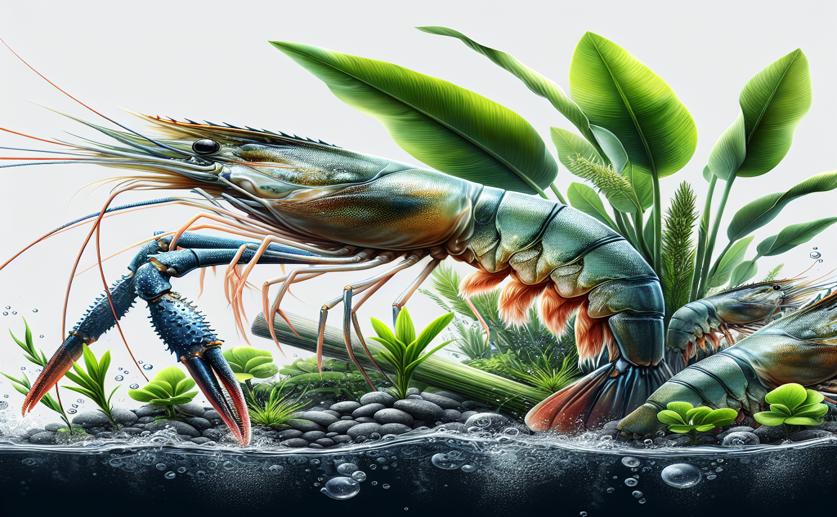
How Plant-Based Diets Affect Growth in Giant Freshwater Prawns
Greg Howard
2nd March, 2024

Image Source: Natural Science News, 2024
Key Findings
- In a study at Suranaree University, prawns fed soy-based diets showed varied growth rates
- Fast-growing prawns were better at turning soy into body protein than slow-growers
- Fast-growers had genes linked to metabolism and immunity more active than slow-growers
NutritionGeneticsAnimal Science
References
Main Study
1) Differential responses of hepatopancreas transcriptome between fast and slow growth in giant freshwater prawns (Macrobrachium rosenbergii) fed a plant-based diet.
Published 29th February, 2024
https://doi.org/10.1038/s41598-024-54349-6
Related Studies
2) Transcriptome reveals involvement of immune defense, oxidative imbalance, and apoptosis in ammonia-stress response of the black tiger shrimp (Penaeus monodon).
3) Growth response and expression of muscle growth-related candidate genes in adult zebrafish fed plant and fishmeal protein-based diets.
4) Glucose Injection Into Yolk Positively Modulates Intermediary Metabolism and Growth Performance in Juvenile Nile Tilapia (Oreochromis niloticus).



 17th February, 2024 | Jenn Hoskins
17th February, 2024 | Jenn Hoskins